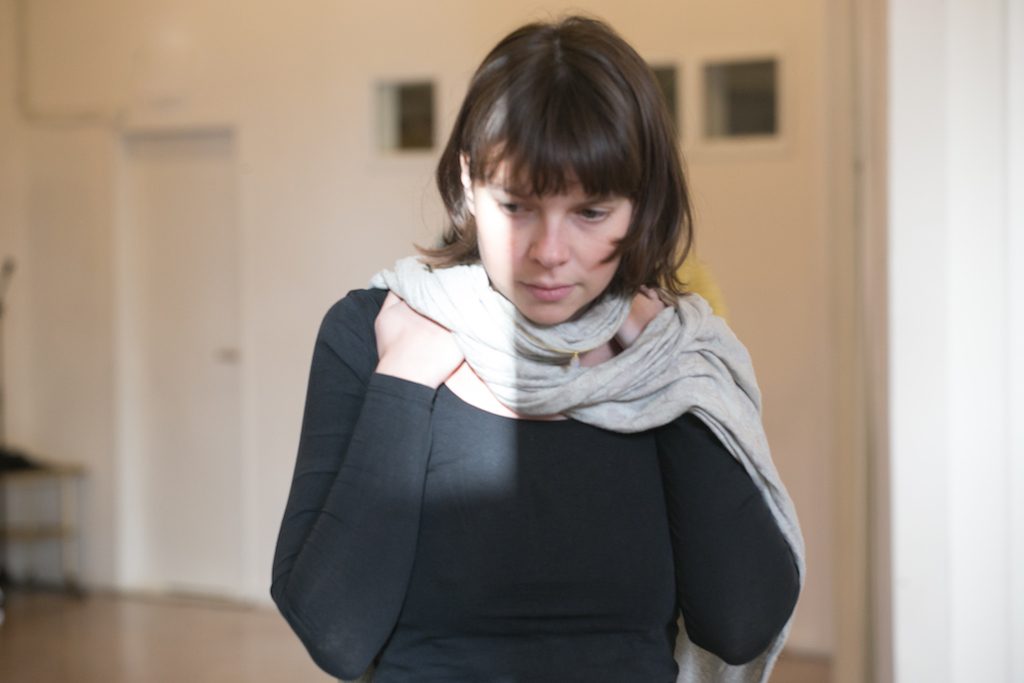
The Empathic Experience of the Practitioner
The interesting topic of empathy came up in a class recently and it’s an experience some Pantarei practitioners share. “I feel the pain of other people in my own body”, one of our students said and asked us to teach her ways to protect herself and create clearer boundaries in the working room. Another student also related to the comment and said that they too feel it – in the sense of the person’s energy – the entire day after giving a session.
What does it mean to feel empathy – to feel somebody else experience pain, happiness, or intensity? How do we feel it? And what we can do about it? These are the questions that led us to write about this today.

As practitioners, the experience we have with our clients is a very close one – we talk and find ways to relate to the topics that matter to our clients. We are exposed to their feelings and the way they experienced certain things in their life. We hear and feel their sadness, happiness, frustration and longings along with any other feeling they may express. Most of the time it just feels beautiful, as if being introduced to a different character of energy that is different to ours. The experience can be similar to what people feel when they visit new countries – only that here the practitioner visits the different experiences of different people. This can lead us, as practitioners, to be touched and therefore richer in stories and possibilities. But sometimes, and for some people, this magical skill we call empathy, becomes also a burden as it overwhelms us; we are no longer sure where we end and the other person begins.
Do we feel somebody else’s experience?
Feeling somebody else’s experience is something we all know about. Some of us are more sensitive to that than others, but eventually we all share that experience one time or another in our life. Empathy is the term that is usually linked to this feeling – the ability to feel with somebody and through this, give that person the sense of being there ‘in it’ with them.

As practitioners, a part of our job is to feel the experience of our clients – when our clients feel their emotional pain and we touch them, we are there with them in that moment. When the client tells us about a victory they had, we feel pride with them; when we hear about a story from their past in which they experienced loneliness or difficulties, we might feel our own heart as their story touches our own emotions. Feeling empathy with our clients’ experiences is a fundamental part of our work and therefore in our classes, we teach students to acknowledge it when it happens, to accept it and to embrace it. Sometimes this is actually a sign that they are in the right profession, one that allows them to use their empathic abilities to help their clients.

How do practitioners ‘feel’ when they let their clients’ experiences in?
Practitioners are unique in their perception, just as their clients are unique. Each of the practitioners we taught, met and worked with, described their abilities in different ways – some felt the change in their energy level and at the same time were easily aware of their own self and the self of their clients. Some felt it physically with their clients and it indicated to them how and where to touch. Some felt that they knew what the client was going to say before it was said, which helped them in leading the session. But some students experienced empathy as a burden – as something that happened not by their own choice – and that confused them, as they aren’t sure if they sense their own feelings or those of their clients. Some people stated that they carried that feeling with them ‘home’- whether it expressed itself in their mood, physical conditions or the way they related to situations in their life.
What can be done about it as practitioners?
If you feel empathic with your clients, but at the same time free to lead the session; if you can maintain clarity and the ability to be touched by the experience of your clients without becoming them, then just continue. You are doing your job, and will probably be rewarded by those moments of connection.

But if what you feel at the end of your working day, is that you’re left with the headaches of one client, or the pain in the heart of another, here are a few suggestions to allow you to not be overwhelmed by your client’s experiences:
- Self-care: do you go into sessions with a sense of your own presence? Are you grounded? Do you feel your own body and physicality? Sometimes simple acts makes a huge difference- taking care that you are not hungry, or that you didn’t eat too much, taking care to drink, to take a deep breathe, to move a bit with your body, to stretch, to look at the room you work in and notice it. You might want to take time to do some training to remind you of your own self and the reason you chose to touch people’s lives.
- Awareness of beginnings and endings: do you notice when one thing starts and another ends? Are you able to get a good sense of the beginning – when a session starts, and how everything that happened prior to it is being put aside, as you are now with your client? If there is something that you can’t put aside, notice if you need to change your actions in some way, to be able to do exactly that. When the session ends, be attentive to that moment, close your eyes for a moment, summarize what happened, and make a mental note of what you want to remember, for the next time you meet your client. Make sure you notice that the session ended and that you’re about to move into another interesting moment of your life.
- Clarity: when we deal with emotional experiences, we need to make sure that our clarity is also engaged, so our emotions have a direction to follow. Notice as a practitioner if you’re aware of your choice of the direction of the session. Your client might feel sadness, but it is you as practitioner who will watch the time and teach your client to breathe and feel the space that opens with it. Your role is to remember what your clients want to achieve – it might be that you will need to connect them to love, so their sadness can be accompanied by the beautiful experience of the heart, or to a loss they experienced that still needs to be digested. Or maybe you’ll connect them to their legs and physicality, so they can feel grounded, knowing they have a safe base even while feeling sad.
- Trust – this is a simple one but so important. Trust your client, yourself and the process. Sometimes all a practitioner needs, in order to not be overwhelmed by what they empathically feel, is time. Practice and experience as a practitioner teach us to find our own tune. Just like driving a new car, or having a new hobby, it takes time to adjust and realize when it’s too much for us, and when it’s too little. It takes time to understand which sessions might need us to take a moment to ourselves afterwards and which ones don’t. Trust yourself and your ability as a practitioner, and be happy with your beautiful empathic abilities.
When we succeed as practitioners to stay open and have empathy for our clients and at the same time lead the meeting, we act in a way so that everyone ‘wins’ – us as well as our clients. Feeling empathic towards others is a gift. It’s an ability humans have – an ability which we can only feel lucky to experience and use selflessly, for the benefit of all. If we take care to use it wisely and not be overwhelmed by it, our life as practitioner will never be boring and will open for us a rich world of many stories to constantly revisit.



